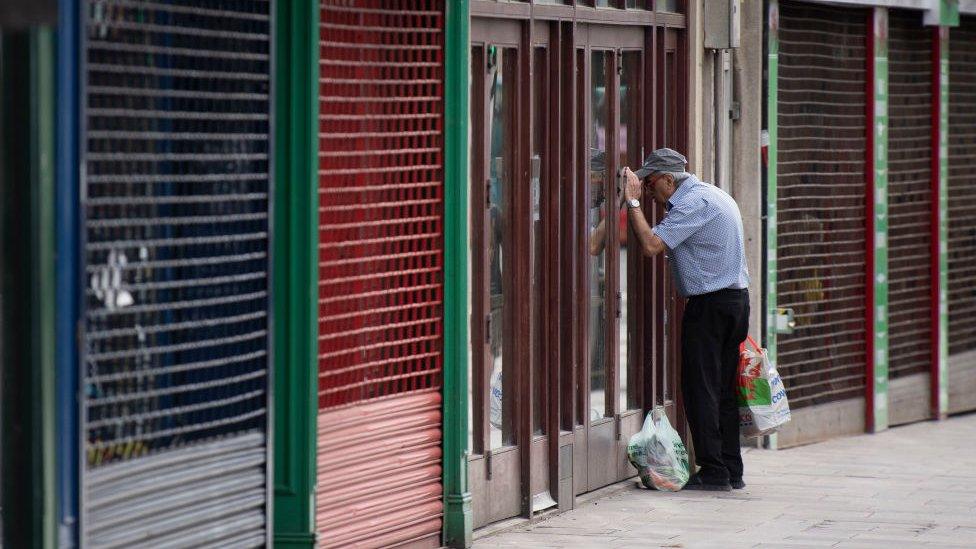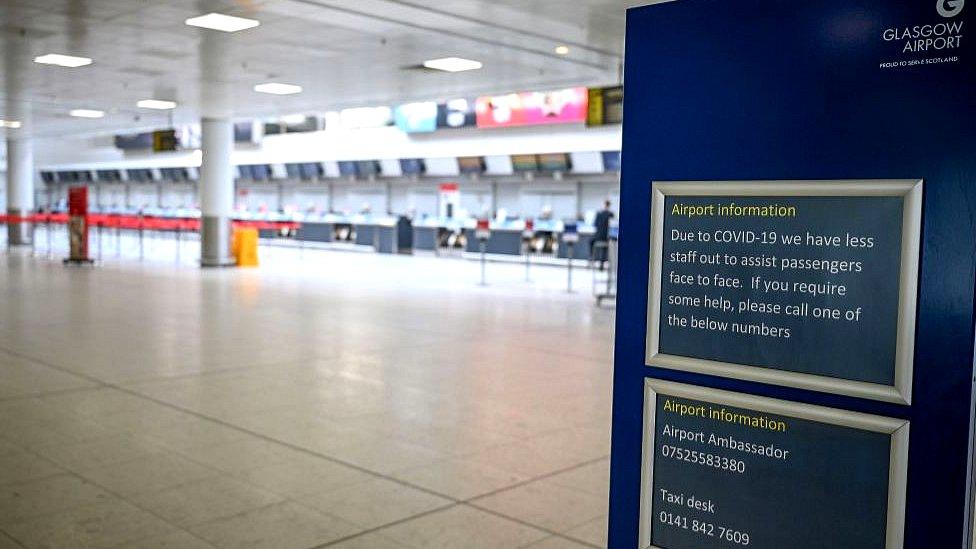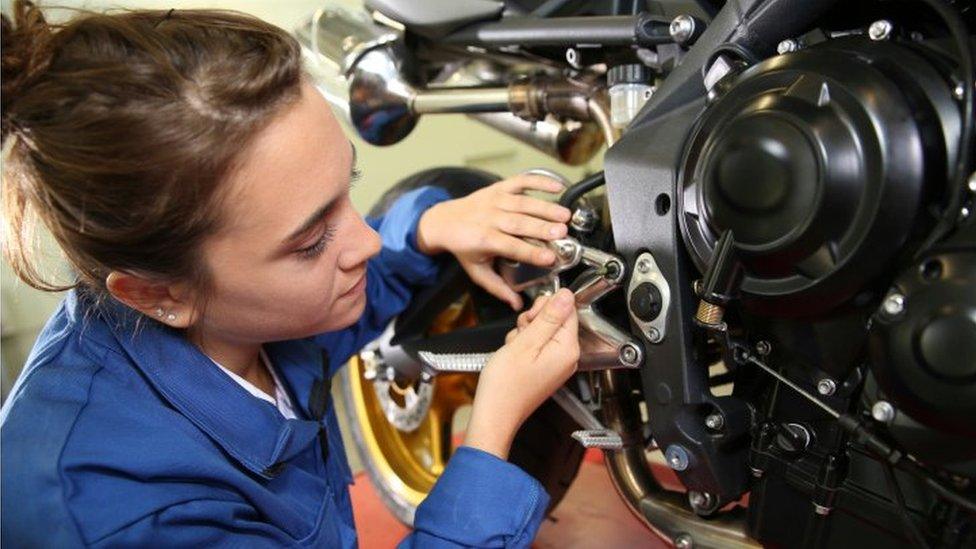Coronavirus in Scotland: 'Deepest recession in living memory' warn experts
- Published
- comments

Economic forecasters believe it will be at least 18 months before Scotland makes up the output lost due to the Covid-19 pandemic.
The Fraser of Allander Institute said the country was now in its deepest recession in living memory.
A report from the think tank said in the most optimistic scenario, it will be the end of 2021 before the economy recovers.
In the worst case scenario it could be 2024 before a "new normal" is reached.
The value of output from the Scottish economy during April fell by 18.9% following the start of lockdown in March.
Oil and gas production and hospitality are among the worst-hit areas but the Fraser of Allander report predicts there will be few areas of the economy that will be unscathed when the economy returns to growth.
The report said the "Scottish economy is now in its deepest recession in living memory" and warned a recovery could take four years if there is another spike of cases and stringent lockdown measures had to be imposed again.
Even assuming the easing of restrictions goes "smoothly", the research body said the economy would not get back to pre-crisis levels until late 2021 or early 2022.
With more than 750,000 people in Scotland either furloughed or being supported through the UK government's self-employment scheme, the think tank fears a possible "raft of redundancies and business closures" will occur when this help starts to be scaled back.
The institute's latest economic commentary said the immediate priority for many businesses is simply survival.

Non-essential retailers are among the Scottish businesses hardest hit by lockdown with many now set to reopen from 29 June
Prof Graeme Roy, director of the institute, said: "So far, as a result of the major government support initiatives that have been put in place the impact of the full effects of the crisis have been dampened.
"Sadly, it is only now once we start to switch the economy back on that the crisis will hit home with a raft of redundancies and business closures likely over the summer."

Scotland's airports have seen a dramatic collapse in passenger numbers since the pandemic started with hundreds of jobs in the sector under threat
The latest economic data has already shown the impact of the pandemic on the economy.
The number of Scots in receipt of the Universal Credit rose to more than 440,000 in May - more than double the total of 185,000 recorded in the same month last year.
In addition, Scotland's unemployment rose by 30,000 to 127,000 between February and April as lockdown hit the labour market.
'A scar on finances'
Steve Williams, senior partner for Scotland at accountancy firm Deloitte, said: "Covid-19 has presented businesses with their most significant and unpredictable challenges in decades, with wide reaching economic and societal implications of lockdown changing life as we know it.
"For the majority of organisations and consumers, the lockdown on non-essential parts of the global economy has left a scar on finances, with businesses and some individuals likely to emerge with a combination of higher debt and weaker financial reserves."

A SIMPLE GUIDE: How do I protect myself?
AVOIDING CONTACT: Self-isolation and exercise rules
HOPE AND LOSS: Your coronavirus stories
LOOK-UP TOOL: Check cases in your area

- Published23 June 2020
- Published22 June 2020

- Published21 June 2020
